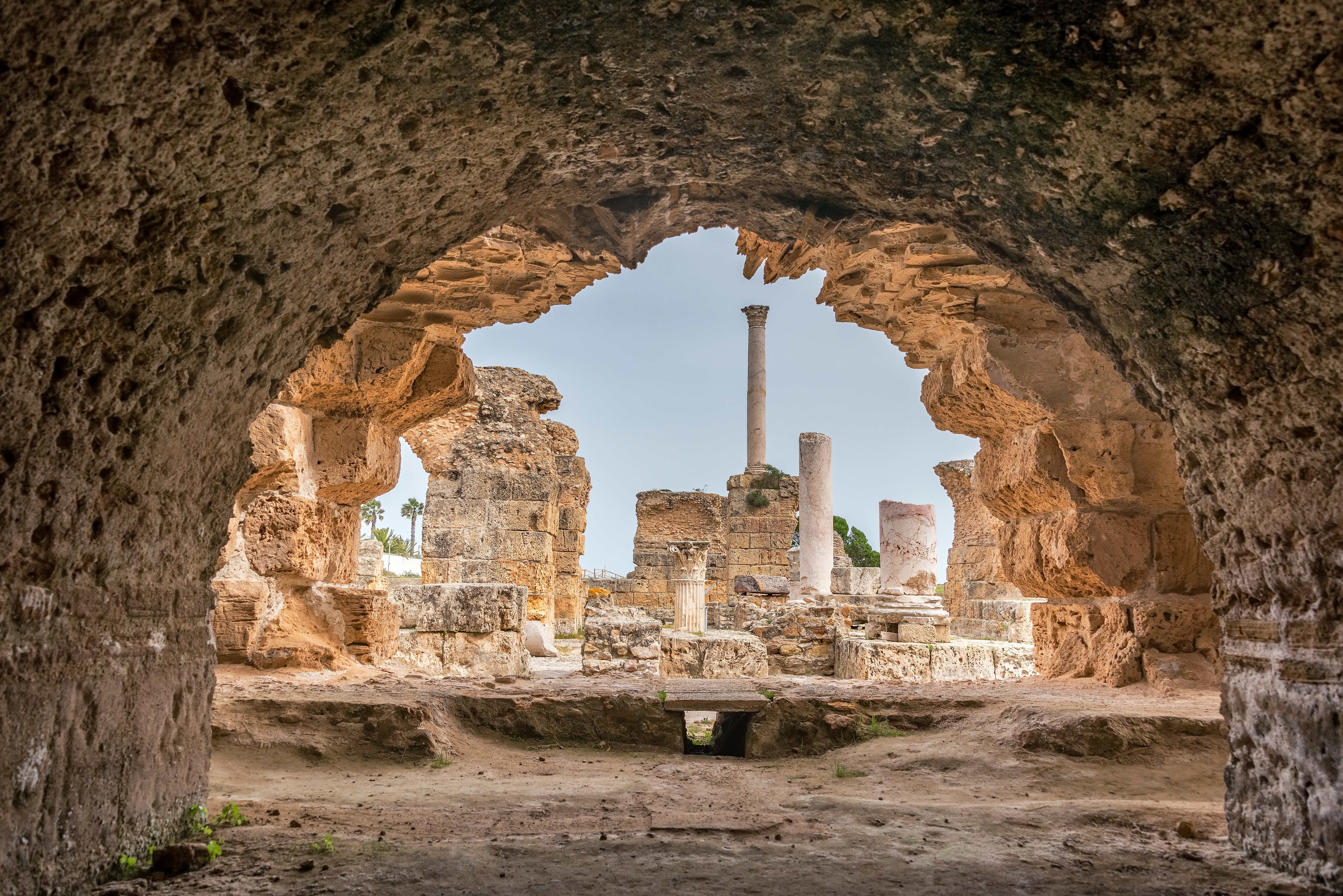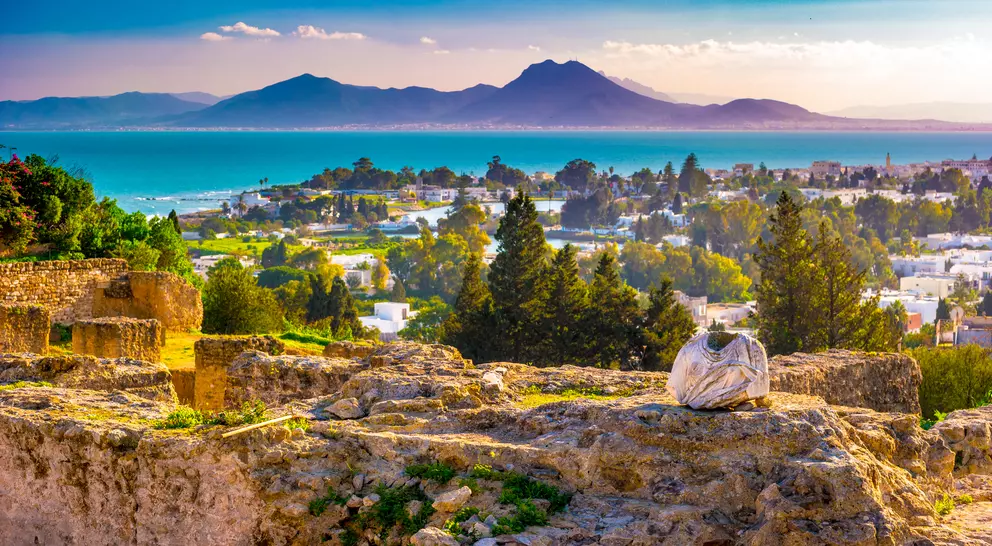US and Canadian citizens do not need a visa for stays of up to 90 days. You’ll need a passport valid for at least six months past your travel dates. If you plan to rent a car, an International Driving Permit is recommended alongside your licence.
Discover Tailor-Made Tunisia Vacations
Journey through Tunisia’s Roman ruins, desert oases, and Mediterranean coastline.
Tunisia is where ancient history meets desert adventure and seaside relaxation. Explore Carthage and El Jem, wander colourful souks, discover the Sahara, and unwind on Mediterranean beaches. It’s a destination of layered culture, history, and landscapes.
Featured Highlights
- Explore Carthage’s ancient Punic and Roman ruins
- Marvel at El Jem’s grand Roman amphitheatre
- Experience camel treks across the Sahara desert
- Wander souks alive with spices, textiles, and crafts
- Admire Sidi Bou Said’s blue-and-white architecture
- Unwind on golden Mediterranean beaches
Featured Tunisia Trip Ideas
From Carthage to the Sahara: Tunisia’s treasures awaitTunisia offers an experience where history and landscapes collide. From the Roman amphitheatre at El Jem to the archaeological wonders of Carthage, travellers can uncover the layers of past civilisations. The Sahara invites adventure, with camel rides, desert camps, and palm-dotted oases. Coastal towns such as Sidi Bou Said provide Mediterranean charm with whitewashed houses and blue shutters, while bustling medinas brim with spice markets and artisan crafts. Whether drawn to cultural discovery, desert exploration, or seaside relaxation, Tunisia reveals its richness at every turn.
Best of Morocco & Tunisia
Douz, Tozeur, Tunis, Marrakech, Fez, and CasablancaHighlights of Tunisia: Tunis, Tozeur, Douz & More
Douz, Tozeur, and TunisDon't see the
perfect trip idea?
Request a custom quote.
Turn your travel dreams into reality with Goway. Our customized vacations take travellers to all corners of the world.
What do Goway's travellers say?
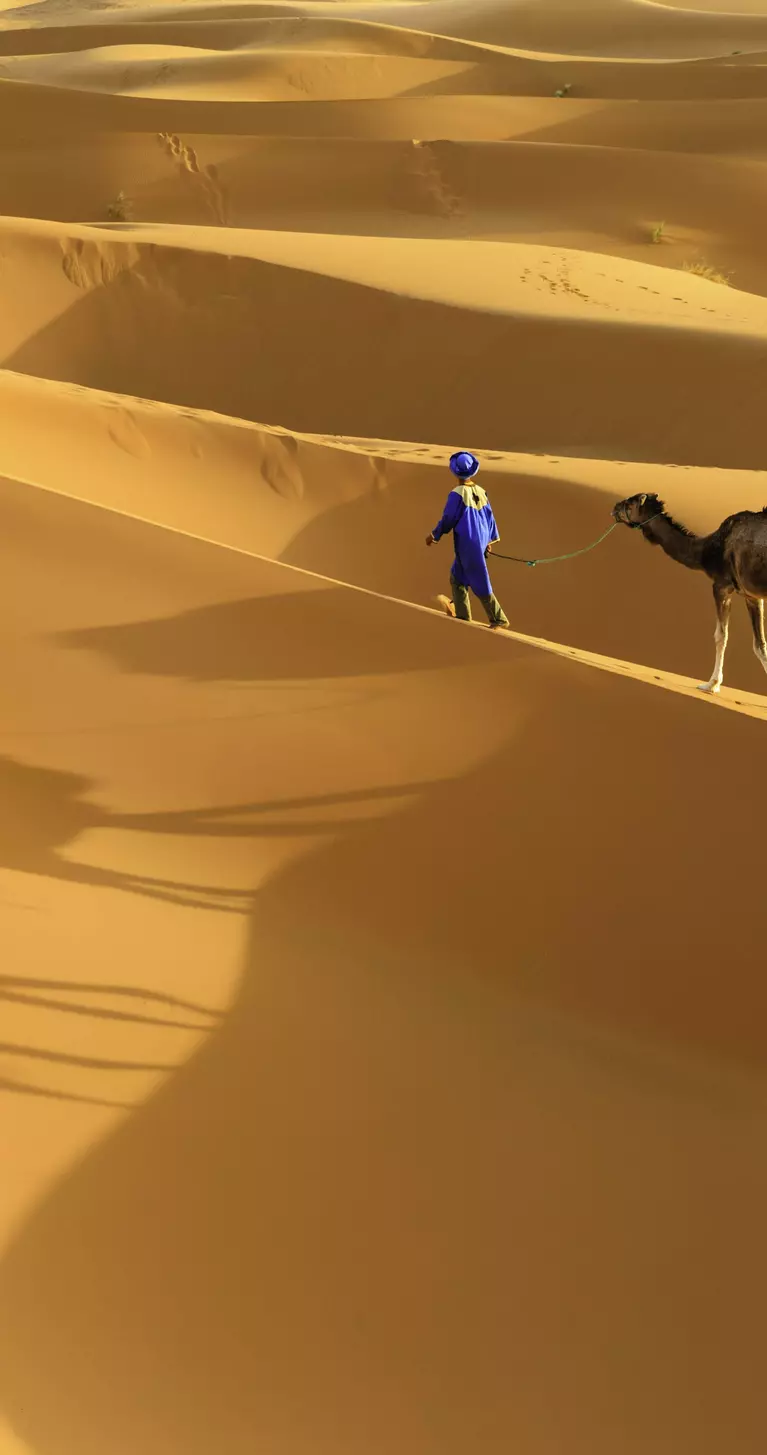
Get to know Tunisia before you go.
Best Time to Visit
The best time to visit Tunisia depends on the kind of journey you seek. Spring and Autumn are particularly inviting, with gentle warmth and blooming scenery that make exploring ancient ruins, charming towns, and the country’s varied landscapes a rewarding experience.
From March to May, the countryside awakens with wildflowers, offering perfect conditions for walking trails in the northern mountains and unhurried visits to archaeological treasures such as Carthage and Dougga. Autumn, stretching from September to November, brings similar comfort, ideal for those who prefer to avoid the height of summer crowds while still enjoying outdoor adventures.
Summer, from June to August, belongs to the coast. Long days of sunshine draw travellers to beaches in Hammamet, Sousse, and Djerba, though the popularity of these resorts means livelier atmospheres and warmer temperatures. Inland regions, meanwhile, can feel intense during these months.
Winter offers another perspective. Between December and February, cooler conditions open up opportunities for desert excursions, camel treks, and cultural explorations. Southern Tunisia remains pleasantly mild, making it a welcoming escape from northern winters.
Tunisia also shines through its festivals. December’s International Festival of the Sahara in Douz brings Bedouin traditions to life, while November’s Carthage Film Festival offers a cultural highlight for cinema enthusiasts. Given Tunisia’s varied geography, travellers should also consider regional differences: the Mediterranean coast enjoys a gentler climate, while the Sahara provides striking contrasts between day and night.
What do the experts say?
Friendly reminder that Tunisia is on the Mediterranean and has both an incredible coats line and an incredible history... It is also easily combineable with both Morocco and Egypt
Make sure you try Sunshine On A Plate - Olive oil, fresh or grilled vegetables, fish and seafood, served with cereals, herbs and spices. Tunisian cuisine is first and foremost based on typical Mediterranean flavours that are both light and delicious.
Places To Go
Handcrafted journeys to our most popular places to visit in Tunisia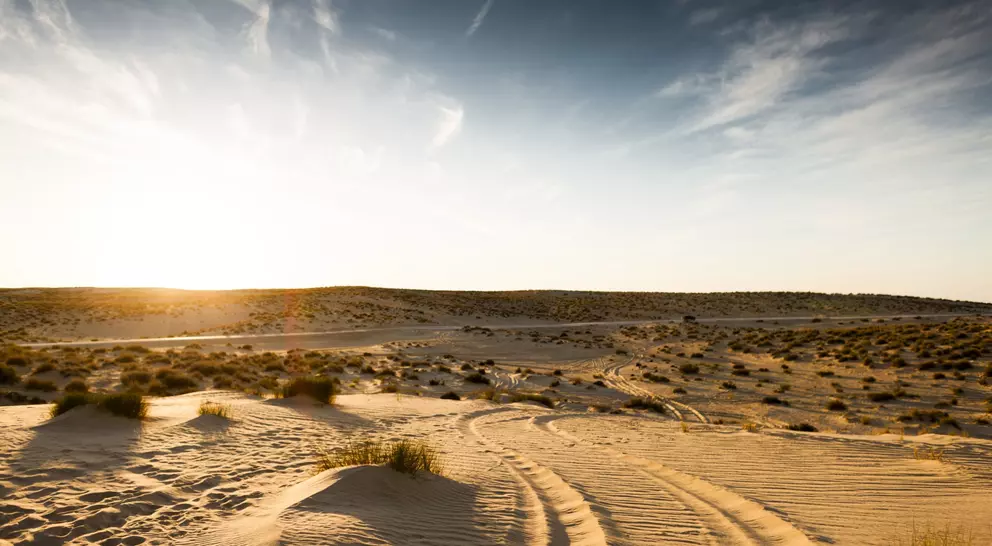
Douz
Douz is a town found in the Kebili Governorate in the south of Tunisia, standing on the northern...
Douz is a town found in the Kebili Governorate in the south of Tunisia, standing on the northern fringe of the Sahara. It is an incredible palm oasis hosting over 500,000 palm trees and is often...
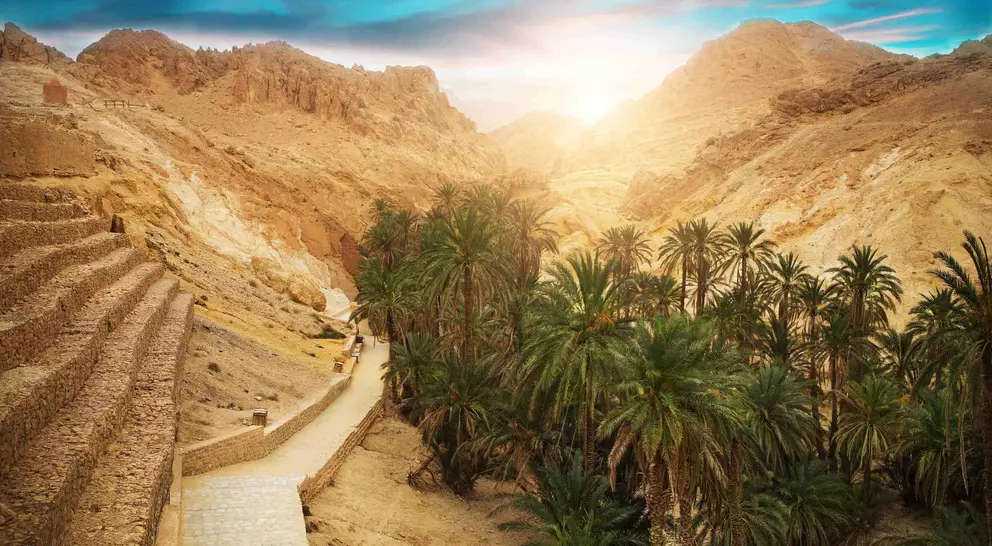
Tozeur
On a Tunisia vacation, Tozeur is both an oasis and a city found in the southwest of the country. It...
On a Tunisia vacation, Tozeur is both an oasis and a city found in the southwest of the country. It is a centre for desert tourism and is famous for its many palm trees and the production of dates...
Travel Styles
Explore Tunisia by Travel Type
Ways to Travel

Ways to Travel
Frequently Asked Questions
Do I need a visa or special permits to enter Tunisia?
What language is spoken locally? How widely is English understood in Tunisia?
Arabic is the official language, and French is widely spoken, especially in business, education, and tourism. English is increasingly understood in hotels, tourist areas, and among younger Tunisians, but less so in rural towns. A few French or Arabic phrases go a long way.
What are the must-see attractions in Tunisia?
The ruins of Carthage near Tunis are a highlight for history lovers, while the medina of Tunis offers winding alleys full of markets and mosques. The coastal town of Sidi Bou Said charms with blue-and-white houses overlooking the Mediterranean. In the south, the Sahara Desert offers dramatic dunes, camel treks, and troglodyte homes in Matmata. El Jem’s Roman amphitheatre is one of the best-preserved outside Italy, and Djerba Island blends beaches with traditional villages.
Is Tunisia safe? What should I keep in mind while travelling there?
Tunisia is generally safe for visitors, especially in tourist areas, but travellers should stay updated on local advisories before departure. Petty theft can occur in crowded markets, so keep valuables close. Avoid sensitive political discussions and large gatherings. In desert or rural areas, it’s best to travel with a guide or organized tour.
What's the best way to travel within Tunisia?
Trains and long-distance buses connect major cities like Tunis, Sousse, and Sfax. Louages (shared taxis) are a fast, affordable way to travel between towns. Renting a car offers flexibility, especially if you plan to explore the desert south. Domestic flights are available to Djerba and other regions if you want to save time.
What Tunisian cultural customs should I be aware of?
Tunisia is a Muslim-majority country, so modest dress is expected in mosques and traditional towns. Always remove shoes before entering a mosque. It’s polite to greet people with “As-salaam alaykum” and to accept tea if offered. During Ramadan, be mindful that many locals fast—avoid eating, drinking, or smoking in public during daylight hours. Tipping is common in restaurants and for guides.
What should I wear/pack for Tunisia's climate?
Tunisia has a Mediterranean climate in the north and desert conditions in the south. Light, breathable clothing works well in summer, but bring a scarf or shawl for modesty and sun protection. Winters can be cool and rainy in coastal areas, so a light jacket is useful. For desert trips, pack layers—days are hot, nights can be surprisingly cold. Comfortable walking shoes, sunscreen, and a hat are essential.
Unlock more by subscribing to our newsletter.
With our newsletter, you’ll get access to regular communications that inspire you and help you explore the world your way.

